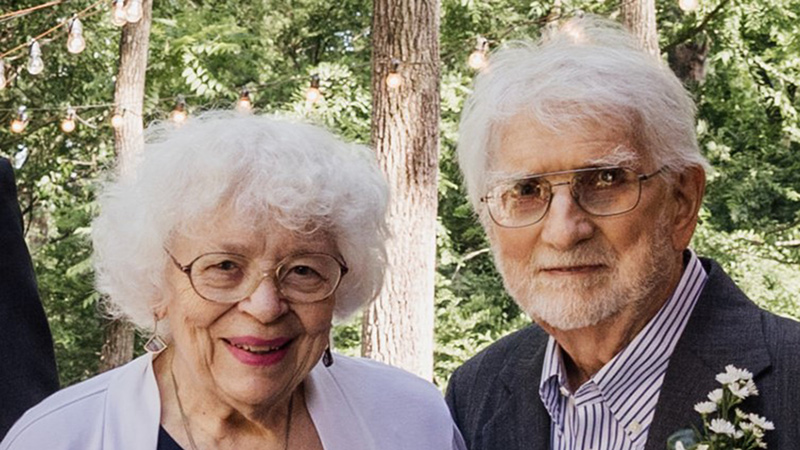
For the past 22 years, a $50 donation to Scripps Research has been made annually by Pennsylvania residents Donald and Milly Hopkins. Last year, Scripps Research received a letter from the Hopkinses offering an explanation. It began, “We thought that you might like to know the reason for our faithful giving, which, in short, is our way of offering thanks to Scripps for making a huge difference to our lives.”
The couple went on to explain that in 1986, Donald, a professional musician, had been diagnosed with hairy cell leukemia (HCL), a rare form of cancer that affects the development of white blood cells. The illness left him vulnerable to anemia and infection, among other life-threatening conditions. During their research into treatment options, Donald and Milly discovered that Scripps Research had developed an experimental drug, 2-CdA, for HCL and was conducting a small clinical trial. But before Donald could apply to participate in the trial, a serious mycobacterial infection sent him to the hospital. His life lay in the balance for the next 10 weeks and the music that had regularly filled the Hopkins household went silent.
A graduate of Juilliard, Donald lived, breathed, talked and played music at every opportunity. He co-founded the highly regarded Alard String Quartet and held the first violin position for many years. He taught conducting and theory courses, among others, as a faculty member at Penn State University, where he also oversaw the university’s popular Chamber Music Workshop. He and his wife Milly had toured the world with the quartet, raised five children and were looking forward to more adventures together. Certainly, their duet couldn’t be over so soon.
As the days and weeks ticked by, Donald’s condition began improving. He was going to survive this infection, but what about the next one? It seemed that his future health depended on addressing the HCL. While there was no cure for the disease—and one still doesn’t exist—the novel treatment offered hope for remission. So, at Donald’s urging, his physician reached out to Scripps Research and secured a spot in the clinical trial. A few months after his release from the hospital, Donald and Milly boarded a plane for California.
“Of course, not everyone who is treated with 2-CdA survives the disease, but I was one of the 80 percent who do, and I and my family are grateful for the work of the scientists at Scripps Research that made it possible,” Donald explained in the letter. He was approaching the age of 91 by that time and calculating that the remarkable medicine—approved by the FDA in 1993 and marketed as Leustatin®—had “added a full 50 percent to my life span.” He resumed teaching at Penn State, performing with his string quartet and watching his family grow. When the HCL reappeared in 2005, the same medicine restored his health.
Earlier this year, Donald passed away from complications following a surgery. Milly shared with Scripps Research some highlights from their 67 years together: taking the whole family to New Zealand in the 1960s and again in the 1980s, where the Alard String Quartet performed on tour for several months; regular camping trips that subsequently led three of their grown children to pursue environmental careers; and returning to school at age 50 to earn her master’s and doctoral degrees in clinical psychology, then working at Penn State’s counseling center. “It was a miracle to us that the drug worked,” she says. “It gave us another 32 years together.”
And so, the annual expressions of gratitude continue. It’s a philanthropic gesture that has been a habit with them, Milly says. “We always have a list of things we feel it’s important to support: the arts, the Scouts, scientific research and medical care for those who can’t afford it.”
Scripps Research scientists who often devote their entire careers to solving one medical mystery rarely learn about how their work affects individual patients. The letter from Donald and Milly Hopkins is a tangible reminder that scientific research does indeed change lives.
LEUSTATIN® (cladribine) was developed at Scripps Research by hematologists and researchers Ernest Beutler, MD, and Dennis Carson, MD. It prevents cancer cells from reproducing by inhibiting DNA synthesis.